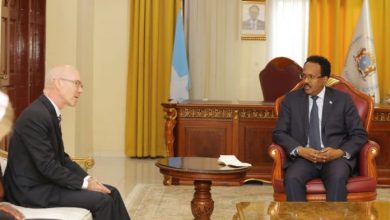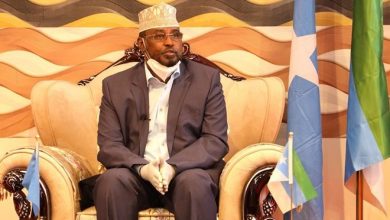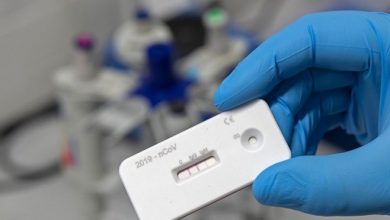Somali Trade Unions Celebrate Somalia Reaching ‘Decision Point’ For Debt Relief
The umbrella organization of Somali trade unions, the Federation of Somali Trade Unions (FESTU) has hailed the news that Somalia became yesterday the 37th country to receive debt relief under The International Monetary Fund (IMF) and World Bank (WB)’s enhanced Heavily Indebted Poor Countries (HIPC) Initiative.
The umbrella organization of Somali trade unions, the Federation of Somali Trade Unions (FESTU) has hailed the news that Somalia became yesterday the 37th country to receive debt relief under The International Monetary Fund (IMF) and World Bank (WB)’s enhanced Heavily Indebted Poor Countries (HIPC) Initiative.
The labour unions body described this milestone, known as ‘Decision Point’, as a journey where Somalia’s Federal Government displayed its commitment to financial management and reforms through various programs to rebuild the country towards peace and economic prosperity, a reality that appears concretely on the horizon.
“As a nation, we have now entered a new chapter with exciting possibilities, an important first step that can potentially break the cycle of poverty for millions, the majority of whom are workers, and for generations who have only known conflict and strife,” said Omar Faruk Osman, General Secretary of the Federation of Somali Trade Unions (FESTU).
Reaching ‘Decision Point’ effectively translates to Somalia being eligible for debt relief and the normalization of its relations with the international financial institutions. Somalia will now see its debt reduced from US$5.2 billion (at end-2018) to US$557 million once it reaches the HIPC Completion Point in approximately three years’ time.
In addition, throughout March 2020, a significant portion of Somalia’s debt was cleared; as a result of payments made by the UK and other major partners, Somalia’s arrears to the African Development Bank to the tune of $122.55m was cleared. Similarly, debts to the World Bank’s International Development Association were cleared by the government of Norway, and arrears to the IMF were cleared with the assistance of bridge financing from the government of Italy.
The fact that the majority of Somalia’s population was born after the civil war, means that many Somalis have no familiarity with national economic frameworks that were not linked to serving unsustainable debt. The current generation, particularly the youth and the working masses, should not be burdened with the impact of these debts. For this reason, the IMF/World Bank decision is very welcome.
This decision now frees up financial resources to strengthen Somalia’s economy and also puts Somalia is a strong position to qualify for certain types of grants and private sector financing and help the country respond to its multitude of socio-economic needs. Greater investment in public infrastructure, social development, education, health, and information technology among others, translates to meaningful change in the lives of Somali people and places Somalia on a trajectory to engage fully at an international level.
“We recognize and applaud the Federal Government’s continued efforts to present itself as a credible partner that sets Somalia on a stable path to economic prosperity for its citizens. We intend to continue engaging with government authorities and exercising the necessary oversight to ensure international faith and belief in Somalia remains warranted and deserved,” added Osman.





